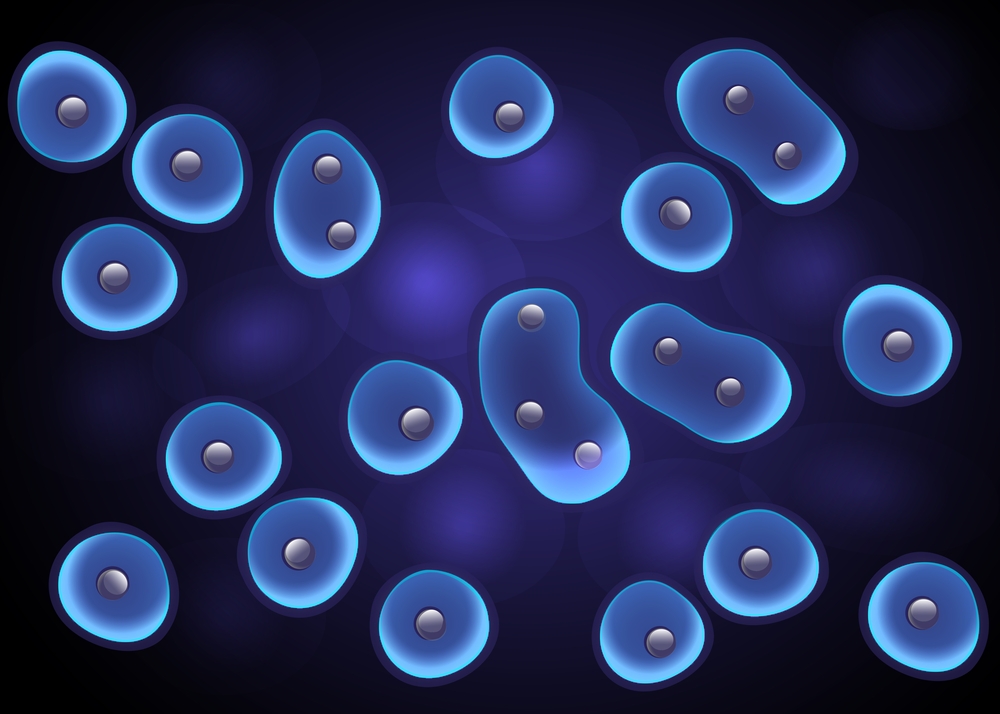Stem Cell Therapy Improves Kidney Function in Mice Model of Alport Syndrome

Chorionic stem cells were able to differentiate into specialized kidney cells both in the laboratory and in a mouse model of Alport syndrome, and may be a treatment for patients, according to a study published in the scientific journal Stem Cells and Development.
Its researchers suggested that chorionic stem cells may one day aid Alport syndrome patients by delaying the onset of kidney disease or even treat the condition by replacing defective kidney cells.
The study was led by Dr. Pascale Guillot of the Institute for Women’s Health, Maternal and Fetal Medicine at University College London, and titled “Human Chorionic Stem Cells: Podocyte Differentiation and Potential for the Treatment of Alport Syndrome.”
Stem cells were obtained from the chorion (the membrane that surrounds a fetus) from women in the first three months of their pregnancy. When researchers injected these stem cells into the abdomen of mice with Alport syndrome, the animals’ levels of urea in the blood and protein in the urine significantly dropped after two weeks, indicating better kidney function.
Moreover, almost two-third of the animals treated with the stem cells kept their weight above the 80% “welfare” threshold, and both males and females weighed more than animals of the same age that were not treated with the stem cells and used as controls.
In further analysis, the researchers saw that stem-cell treatment reduced scarring in the kidneys and inflammation in the intestines. The injected stem cells had moved to the kidneys and started expressing genes that are known to be expressed in podocytes (specialized cells that wrap around capillary blood vessels in the kidneys) suggesting that they were turning into new podocytes.
Chorionic stem cells, the research team concluded, could be used to delay the progression of kidney disease “via a combination of anti-inflammatory effects and replacement of the defective resident podocytes.”
Although an early study in an animal model, its findings suggest that this stem cell therapy may become an option for people with this disease.
“[C]ell-based therapies offer promise to improve renal function. In this study, we found that human first trimester fetal chorionic stem cells (CSC) are able to migrate to glomeruli and differentiate down the podocyte lineage in vitro and in vivo,” the researchers said.







Leave a comment
Fill in the required fields to post. Your email address will not be published.